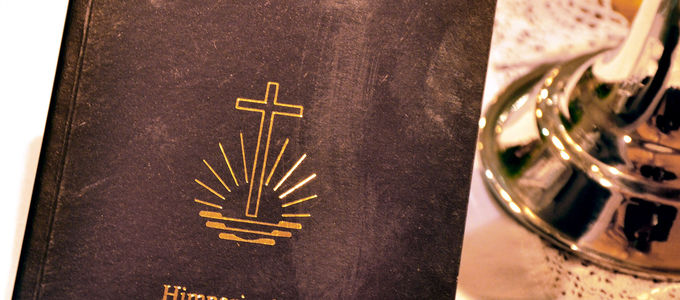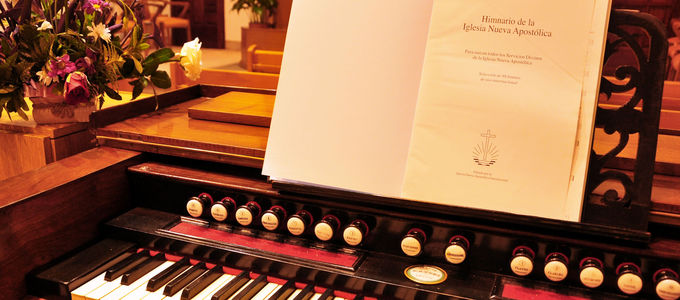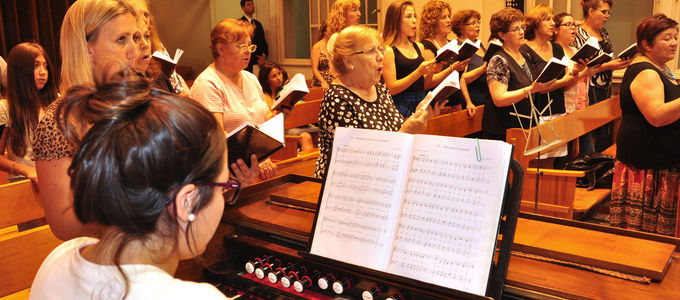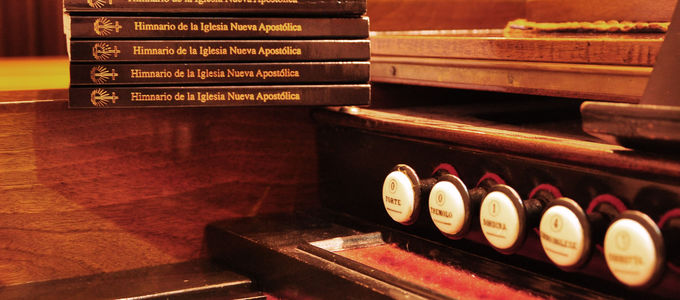New hymnal introduced in Spain
Starting tomorrow, the New Apostolic Church in Spain will turn over a new leaf, so to speak. As of 1 March, the brothers and sisters there will be singing from a new hymnal. The new Spanish hymnal originated from a kind of big sister in a different part of the world.
Spain is not the first country in which the New Apostolic Church has introduced a new hymnal. A start was made in Europe in 2005—in the German-speaking regions—when a new German hymnal was introduced to the congregations that supplanted the old hymnal from 1925. Over seven years, the old German hymnal was completely revised. There were three main reasons for the revision. Over time, the language and style had changed drastically, certain text passages no longer corresponded with the current doctrine, and the musical needs had changed.
The reasons for the revision of the Spanish hymnal were similar. In addition, the song collection needed to become more international. The new hymn-book includes 300 songs, of which 200 are traditional songs. And 98 songs are translations of an international selection, which are also found in the English and German hymnals.
Help from the big sister in Argentina
The new Spanish hymnals were delivered in November and December 2014, Miguel Hild, the music consultant of the New Apostolic Church in Spain said, when asked by nac.today. About 2,000 books with and without music have been distributed. The congregations have also been supplied with large-sized organ copies, either with a rigid cover and stitched in the spine or spiral-bound.
The hymnals were printed in Spain. The printing files, however, were supplied by Argentina. The printed organ copies were also supplied by Argentina, the New Apostolic Church in Switzerland reports. The District Church in Switzerland coordinates the pastoral and administrative care of the New Apostolic people in Spain. With nearly 100,000 members, the Church in Argentina is about 33 times as large as it is in the Spanish mother country. The Church in Argentina thus had the necessary resources to undertake such a major project and develop a new hymnal.
Similarities and differences in the language
A committee of experts chaired by Apostle Jorge Franco worked on the revision for nearly a whole year. The hymn collection was redeveloped, composers and lyricists were contacted, song texts were theologically reviewed, and musically and textually revised. On the committee was also Diego Licciardi, a professional musician who works at the Manuel De Falla Academy of Music in Buenos Aires.
During the revision, the Argentinians always had to bear in mind the differences between the Spanish spoken in Spain and the Spanish spoken in Argentina, Viviana Aloy, our correspondent in Argentina, says. For European ears, the emotional and poetical texts of the traditional South American songs sometimes take a little getting used to, Miguel Hild, the music consultant of the Church in Spain says. “But many of the brothers and sisters in Spain originally come from Argentina.”
Revisions throughout the New Apostolic world
The members in Argentina have been singing from their new hymnal since 2012. For the New Apostolic Church in Spain, the new hymnal will be binding as of tomorrow, Sunday, 1 March 2015. The English-speaking New Apostolic world has been singing from its new hymnal since 2008. The project was realized in South Africa, together with other district churches from Africa, North America, and Australia. The hymnal features almost 600 songs. The English hymnal in turn was used as basis for a Korean hymnal; 360 songs were translated.
Currently, the French hymnal is in the process of being remade. In January 2015, the members in the congregation of Versoix in Switzerland received their first taste of the new French hymnal during a visit of District Apostle Markus Fehlbaum. Common to all new hymnals is an international section that will allow the brothers and sisters around the world join in song on special occasions, for instance during international transmissions.
Article info
Author:
Date:
Andreas Rother
28.02.2015












